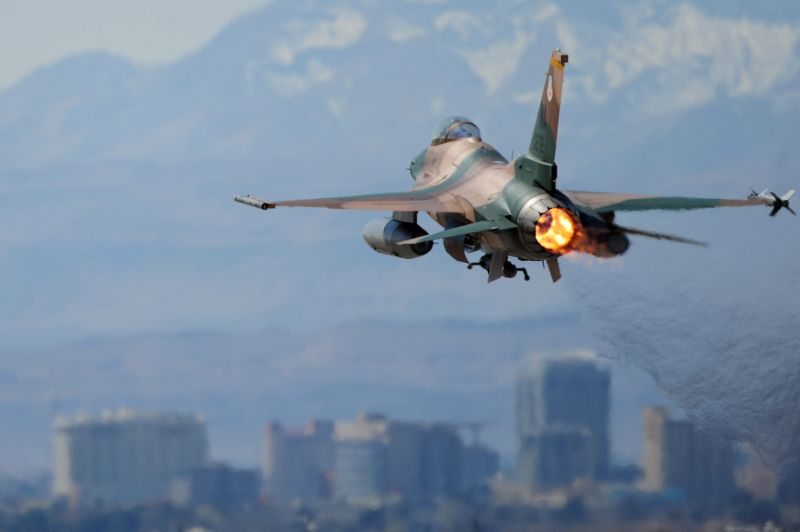The United States should sell more advanced fighter jets to Taiwan to ensure its security, and sign a free trade agreement with the island, said U.S. Representative Ileana Ros-Lehtinen (R-FL.), who chairs the House Committee on Foreign Affairs.
“Taiwan remains the beacon of democracy in East Asia and remains an important strategic ally in a key region of the world,” said Ros-Lehtinen in a visit to the Taiwan Center in Flushing, Queens in late September. “I’m increasingly troubled by the trend of the U.S. decline in support for the island’s freedom of actions.”
Taiwan and its defensive needs appear to be an “after-thought” to the Obama administration, said Ros-Lehtinen. She was referring to the U.S.’s recent refusal to sell Taiwan the latest model of F-16 C/D fighter jets to avoid backlash from China. The U.S. instead offered a package of upgrading the island’s aging F-16 A/B jets purchased in the 1990s.
Ros-Lehtinen, the most senior Republican woman on Capitol Hill, has been a longtime supporter of Taiwan. As the chairwoman of the powerful foreign affairs committee, she has held hearings on Taiwan and introduced a bill earlier this month to “clarify and strengthen the commercial, cultural and other relations” between Taiwan and the U.S.
The bill, H.R. 2918, also known as the “Taiwan Policy Act”, calls for many measures to address Taiwan’s economic and security issues, including providing Taiwan with more advanced defensive weapons, and finishing current economic negotiations and signing a free trade agreement with Taiwan. The bills also calls for inclusion of Taiwan in the Visa Waiver Program, which would grant Taiwanese citizens visa-free entry, and ensuring space for Taiwan’s meaningful participation in international organizations.
“This bill seeks to further clarify and strengthen the Taiwan Relations Act,” said Ros-Lehtinen. The Taiwan Relations Act was passed by the U.S. Congress in 1979 after the Carter administration broke ties with Taiwan and recognized China, which sees Taiwan a renegade province. The act mandates that the U.S. provides Taiwan with defensive arms, and that Taiwan’s future should be determined peacefully. Taiwan’s Ministry of National Defense estimates that China has about 1,500 short-range missiles aimed at Taiwan.
“The Obama administration appears to only be concerned with currying favors with the Beijing creditors with this ballooning budget deficit and it is willing to put Taiwan’s defense need at the backburner,” said Ros-Lehtinen.
“Taiwan needs the new generation of Letting Taiwan slip further and further behind in the cross-straight arm race does not meet the requirements mandated by the Taiwan Relations Act,” said Ros-Lehtinen.
“Cozying up to Beijing with a wink and nod on the arm sales is a clear violation of President Reagon’s Six Assurances,” she added. The Six Assurances was signed in 1982 during the Reason administration to reiterate the U.S.’s commitment to Taiwan. One of the assurances is that the U.S. will not alter the terms of Taiwan Relations Act.
The arms sales also drew criticism from former Massachusetts Governor Mitt Romney, a Republican presidential candidate.
“President Obama’s refusal to sell Taiwan new military jets is yet another example of his weak leadership in foreign policy,” Romney said in a statement after details of the arms sales were announced. “President Obama has ignored Taiwan’s request and caved into the unreasonable demands of China at the cost of well-paying American jobs. This decision raises serious questions about his commitment to our closest partners and to the policies that have sustained American leadership abroad.”
However, Taiwan’s defense ministry said that the proposed upgrade, which will take 12 years to complete, would give its F-16 A/Bs a significant boost.
“After the upgrade, the air force’s combat capability will be advanced hugely,” said Taiwan’s defense minister Hua-chu Kao in a press conference in Taipei in late September. Another statement from the defense ministry said that Taiwan will continue to pursue the purchase of F-16 C/Ds.
In addition to aiding Taiwan’s security, Ros-Lehtinen’s bill also calls for greater economic ties between Taiwan and the U.S.
“Taiwan is the 10th largest trading partner of the United States, and the 6th largest destination for U.S. agricultural products,” said Ros-Lehtinen. “So it’s a desirable market for U.S. goods and services. In fact, studies by the U.S International Trade Commission show that U.S. exports to Taiwan could grow approximately 16 percent a year if the U.S.-Taiwan FTA were enacted.”
“Taiwan is a democracy. It supports a free market. It supports the rule of law,” said Ros-Lehtinen of the island, which has operated as an independent country in the last six decades. “It provides a transparent, free and fair, stable environment for U.S investments and business opportunities in Asia.”
Sean Su, a member of the Young Professionals Group in the Formosan Association for Public Affairs, is hopeful about the passing of the bill although it only has eight co-sponsors so far. His organization is a sponsor of the event and a vocal advocate for the outright independence of Taiwan.
“This [bill] is definitely very policy-oriented, so the chances of it passing are much higher,” said Su, noting that the Congressional Taiwan caucus is one of the largest. Members of the bi-partisan caucus get updated about Taiwan but vote independently.
“Will it pass today? Maybe not in its first circulation. It takes some time,” Su said.










